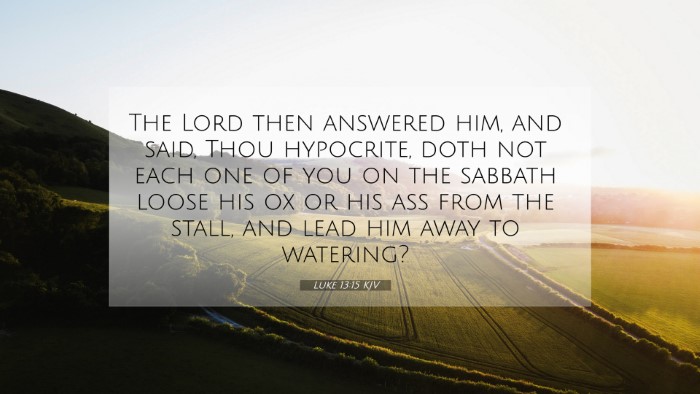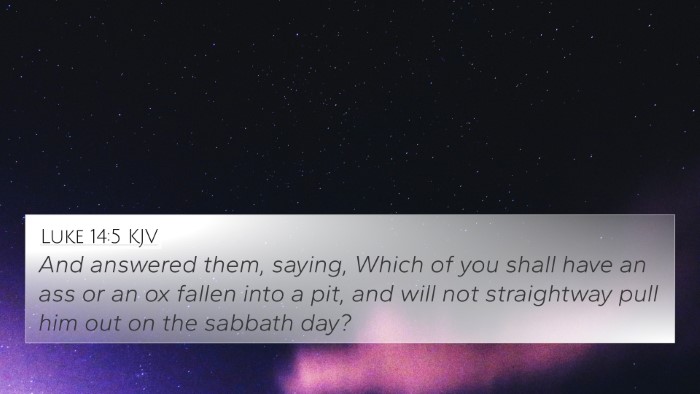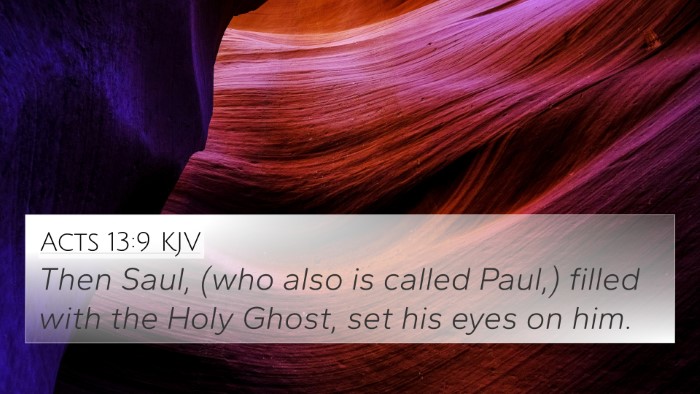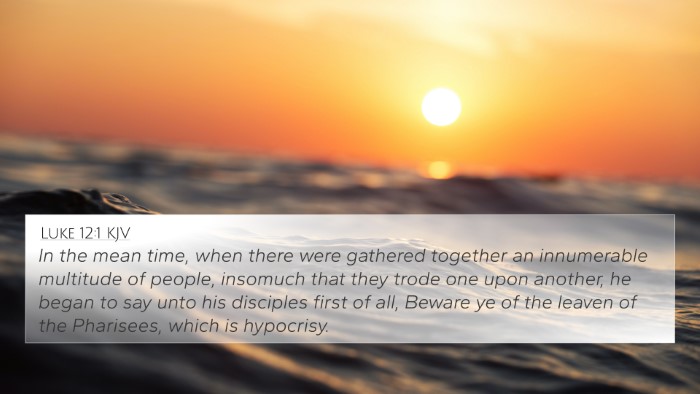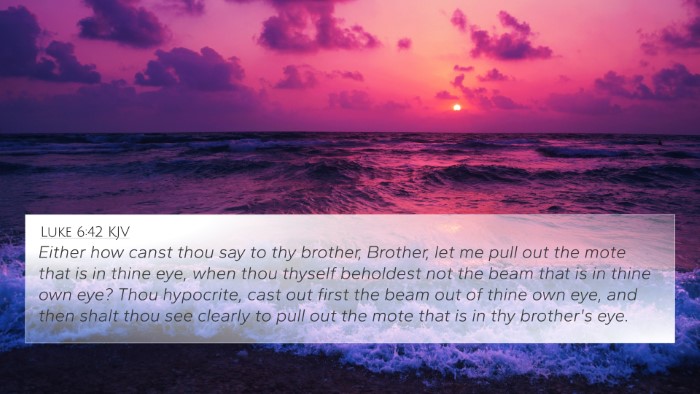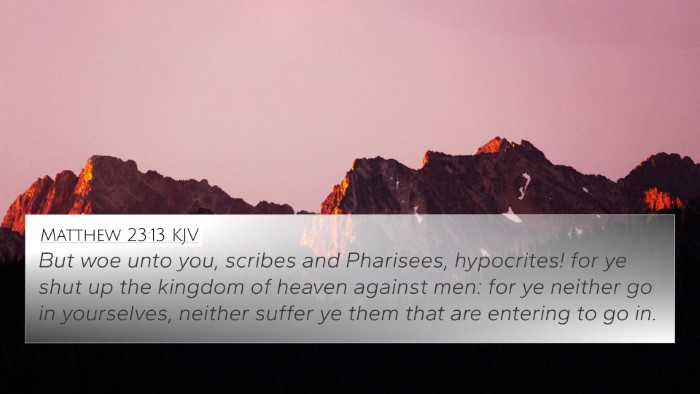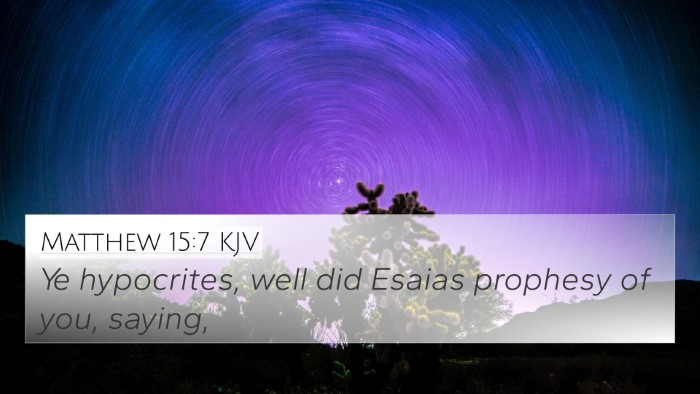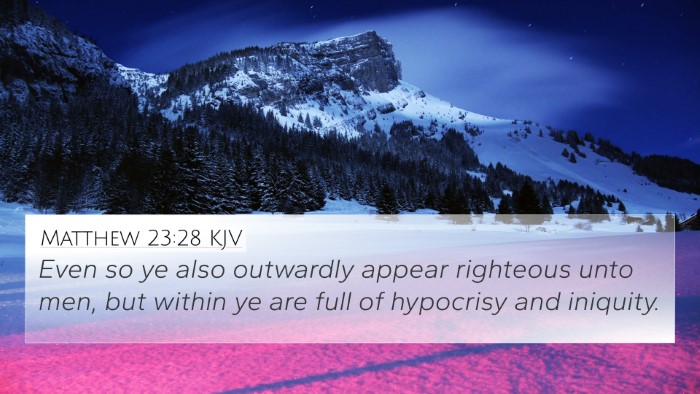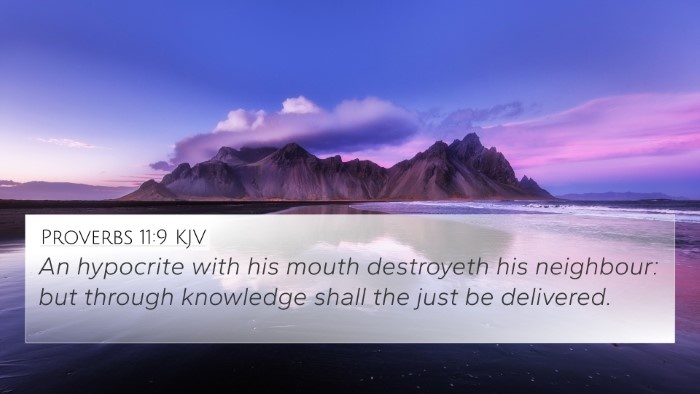Understanding Luke 13:15
Verse: Luke 13:15 (KJV) - "The Lord then answered him, and said, Thou hypocrite, dost not each one of you on the sabbath loose his ox or his ass from the stall, and lead him away to watering?"
Overview
In Luke 13:15, Jesus responds to a synagogue ruler who rebuked a woman healed on the Sabbath. This verse highlights the hypocrisy of the religious leaders who allowed their animals to receive care on the Sabbath while opposing mercy towards a human being.
Verse Meaning and Interpretation
This passage invites a deeper exploration of themes surrounding the Sabbath, hypocrisy, and the essence of mercy within the law. The significant insights from public domain commentaries provide a comprehensive understanding of this verse.
Insights from Commentaries
- Matthew Henry: Henry emphasizes that Jesus points out the contradiction in the synagogue ruler's actions. He argues that if it's permissible to relieve the needs of animals on the Sabbath, it is even more fitting to offer healing and deliverance to a suffering human being.
- Albert Barnes: Barnes highlights the importance of understanding the law's spirit. He suggests that the law was never meant to be a blanket prohibition against doing good. The Sabbath is not intended to inhibit acts of compassion.
- Adam Clarke: Clarke elaborates on the concept of hypocrisy demonstrated by the leaders. He explains how their rigid adherence to rules overshadowed their capacity for kindness, illustrating the true spirit of the law.
Thematic Connections
Luke 13:15 speaks to broader themes within scripture. Below are several key connections and cross-references:
- Exodus 20:8-11: This passage establishes the Sabbath law, emphasizing rest but also the significance of doing good.
- Mark 2:27: Jesus states that "The Sabbath was made for man, and not man for the Sabbath," reinforcing the idea of prioritizing human need.
- Matthew 12:10-12: Jesus similarly addresses the issue of healing on the Sabbath, asking if one should not save a sheep on the day of rest.
- James 2:13: This verse speaks on judgment without mercy, aligning with the merciful attitude Jesus showcases toward the afflicted.
- Hebrews 4:9-10: These verses reflect on the concept of Sabbath rest, suggesting a deeper spiritual rest found in Christ.
- Luke 6:9: Jesus again questions whether it is lawful on the Sabbath to do good or to do evil, echoing the sentiments of our studied verse.
- Isaiah 58:13-14: This prophetic text critiques false Sabbath observance and calls for genuine acts of compassion and justice on the Sabbath.
Practical Application
Understanding Luke 13:15 goes beyond theological analysis; it calls believers to embody the essence of the law which prioritizes love and mercy over ritualistic observance. Christians are challenged to reflect on their own practices and attitudes towards rest, work, and acts of kindness.
Cross-Referencing and Bible Studies
Utilizing tools for Bible cross-referencing can enhance one's study of scripture. By identifying connections between texts, believers can deepen their understanding and draw insights from various passages. Here are a few tips on how to use Bible cross-references effectively:
- Bible Concordance: Use a concordance to find related verses based on keywords or themes.
- Bible Cross-Reference Guide: Seek guides that help connect verses across scriptures, illustrating relationships and themes.
- Cross-Reference Bible Study: Engage in studies comparing different passages that address similar themes, such as mercy, law, and human need.
- Bible Reference Resources: Take advantage of reference materials that compile verses directly relating to one another, aiding in a holistic understanding of themes.
Conclusion
Luke 13:15 serves as a powerful reminder of the heart of God’s law, which is rooted in love and compassion. Through careful cross-referencing with other biblical texts, believers can appreciate the interconnectedness of the scriptures as they explore what it means to live out these truths in daily life.


